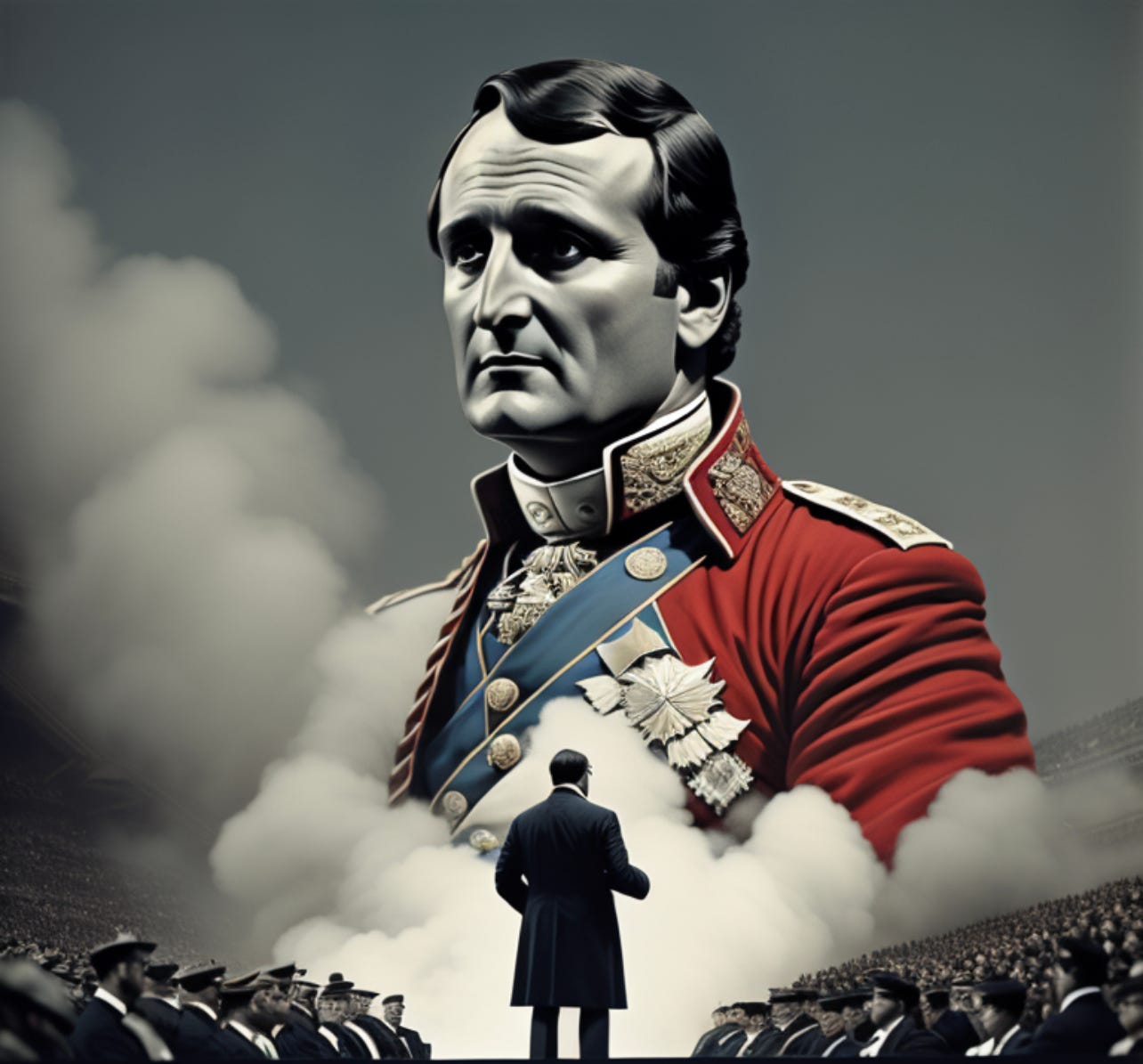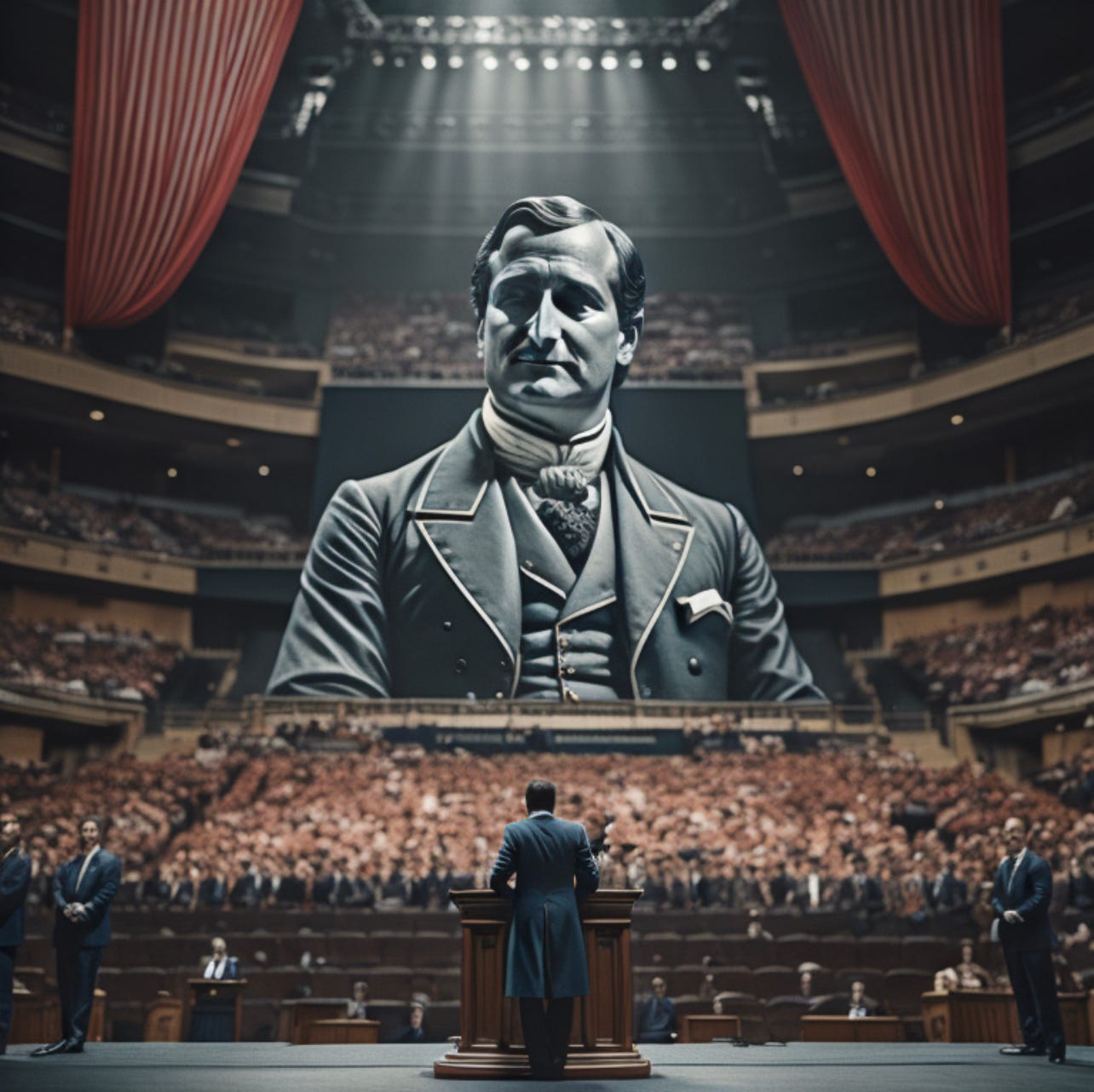(Napoleon speaking at a Trump rally, as created by AI)
Rarely can a movie make me root for the French. ––But after watching Napoleon, I can’t help but hope he will run for President in 2024.
(Napoleon accepting the nomination at the RNC, as created by AI)
Unlike every NeoCon, Napoleon has actually won a war. (Believe it or not, the French used to not surrender and America used to win wars). He has never accepted a dollar from Raytheon and he stamped out Islamic warriors with dispatch.
Unlike every elected official in 2020, save Florida Governor Ron DeSantis, Napoleon stood up to the mob. When left-wing lunatic French revolutionaries started rioting and senselessly killing, Napoleon turned the cannons on them. He freed political prisoners and brought leftist mob rule to an end in France.
When the Directory (legislature) wrecked the economy through inflation and other boondoggles, Bonaparte entered the chamber, punched a few people, brought in the troops, and saved the value of the currency.
Excusez-Wall? The only thing I was left wondering was, “What is his policy on immigration?” (If he supports a big beautiful border wall, I could forgive any of his personality quirks). Consider him tentatively endorsed, pending that immigration policy white paper.
Napoleon (the movie) is mostly a refreshing departure from years of woke nonsense.
(Napoleon as an overweight, disabled, transgender woman of color, as created by AI)
The story is one of a great man who did great things, without studio executives forcing him to be portrayed as an overweight, disabled, transgender woman of color.
(Pepe meme of Napoleon, source unknown)
Joaquin Phoenix’s Napoleon is complex, dynamic, and charmingly autistic.
Sure, Napoleon’s sex life was a bit strange, but that’s not uncommon in super high-achieving males. Investment bankers are some of the biggest frequenters of New York’s dominatrix industry and Truman Capote was inspired to write the greatest true-crime novel of all time, “In Cold Blood”, because of his peculiar homoerotic obsession with one of the killers. The love scenes are tastefully done, although not PG, and show Napoleon as a vulnerable person with an intense affection for Josephine.
However, the movie suffers in a few places by being about half an hour too long. There are numerous battle scenes–– and honestly–– old timey battles are not that visually stimulating; there are only so many ways to stand in a line and shoot each other.
I would have preferred the script’s writers to have read Ann Coulter’s fabulous pop-history of the French Revolution, “Demonic”, before they completed the film. The book is an excellent supplement for those who grew up, as I did, in public education and were given no lessons on the revolution. It helps the reader understand the danger of mobs (which are almost exclusively left-wing phenomena) and how they consume themselves. This would have added an interesting and relevant dynamic to Napoleon’s conflict with the hoards, despite having fought alongside them at one time.
The movie concludes by listing how many Frenchmen were killed in each of Napoleon’s most famous battles. Admittedly, there are a lot. Napoleon killed more of his own than Alex Murdaugh, albeit unintentionally. This was a misstep on the part of the filmmakers as it felt unnecessary and whiny. Yes, we know. People die in war. You did not have to tell us.
However, this should not dissuade interested readers from seeing the picture this Thanksgiving. Napoleon was dually interesting, educational, and relevant.






